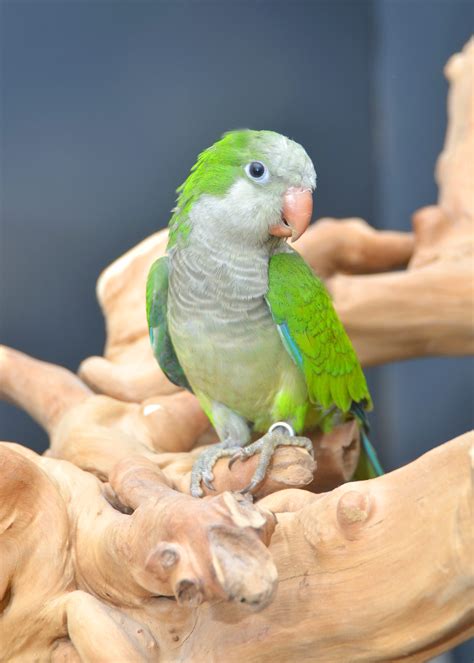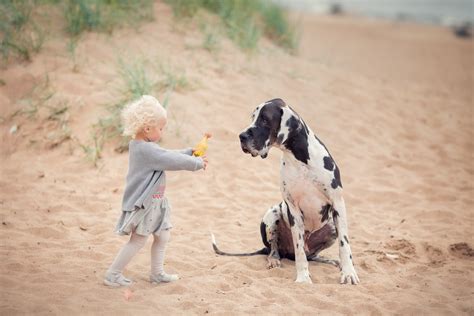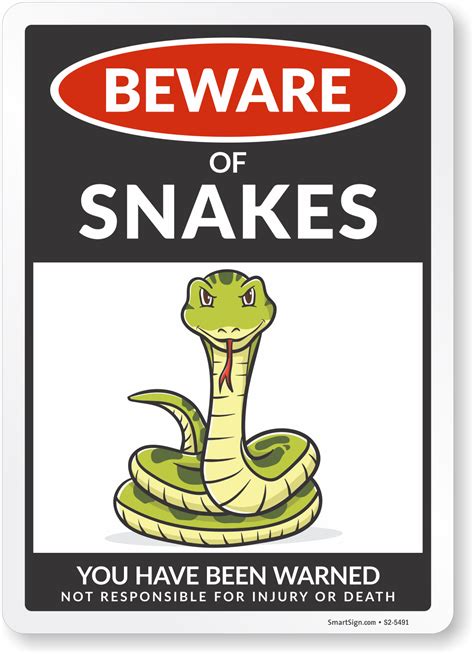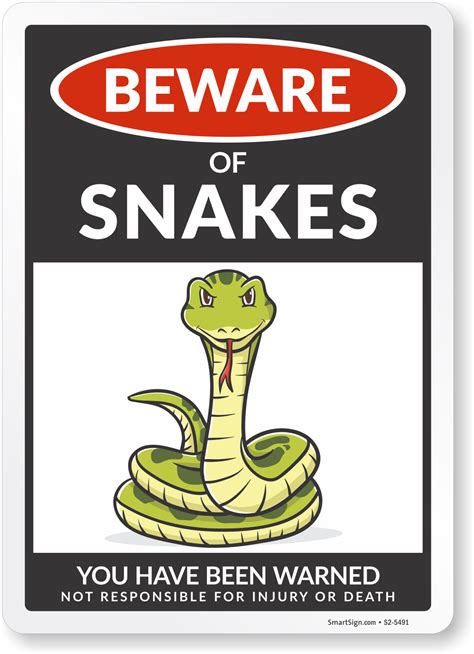
A Quaker parrot named Kiwi is charming the internet with its exceptionally fluffy appearance, inspiring viral adoration and proving that birds can be both intelligent and irresistibly cute.
Kiwi, a four-year-old Quaker parrot, has captured the hearts of social media users with its extraordinary plumage, often described as a “floof.” The bird’s owner regularly posts videos and photos of Kiwi on platforms like Instagram and TikTok, where the parrot’s endearing antics and remarkable fluffiness have garnered a substantial following. The online response underscores the growing appreciation for birds as pets and highlights the unique personalities of individual avian companions.
The internet’s fascination with Kiwi began subtly but quickly escalated as more people discovered the parrot’s unique appearance. According to its owner, “Kiwi has always been a bit fluffier than most Quaker parrots,” but the recent surge in attention has been unexpected and welcome. The videos typically feature Kiwi engaging in everyday activities, such as eating, playing, or simply interacting with its owner, all of which accentuate its striking fluffiness.
“People seem to be drawn to Kiwi’s gentle nature and expressive eyes,” the owner explained. “It’s more than just the floof; there’s a genuine connection people feel when they see Kiwi.” This sentiment is echoed in the comments sections of Kiwi’s social media profiles, where users frequently express their admiration and affection for the bird.
One of the notable aspects of Kiwi’s story is the broader context it provides about Quaker parrots as pets. These birds, also known as Monk parakeets, are native to South America but have become popular pets worldwide due to their intelligence, playful nature, and ability to mimic human speech. However, they are also known for their sometimes-vocal nature and require considerable attention and mental stimulation to thrive in a domestic environment.
Quaker parrots, scientifically known as Myiopsitta monachus, are small to medium-sized parrots characterized by their bright green plumage and greyish-white faces. They are highly social birds known for building large, communal nests out of sticks, a behavior that is relatively unique among parrots. In the wild, these nests can house multiple breeding pairs and provide shelter from the elements and predators.
The intelligence of Quaker parrots is often compared to that of a toddler, capable of learning a significant vocabulary and understanding complex concepts. They can learn to mimic human speech, sounds, and even perform tricks, making them engaging and rewarding pets for owners who are willing to invest the time and effort into their care.
However, the popularity of Quaker parrots as pets has also raised some concerns, particularly regarding their potential impact on local ecosystems. In some areas, escaped or released Quaker parrots have established feral populations, which can compete with native bird species for resources and cause damage to crops and infrastructure. As a result, some regions have implemented restrictions on the ownership of Quaker parrots to prevent further introductions into the wild.
In the United States, for example, Quaker parrots are banned in several states, including California, Georgia, Kentucky, Pennsylvania, and Tennessee, due to concerns about their potential invasiveness. Other states have regulations in place that require owners to obtain permits or licenses to keep Quaker parrots as pets. These regulations are intended to ensure that owners are aware of their responsibilities and take appropriate measures to prevent their birds from escaping or being released into the wild.
Despite these concerns, many responsible owners have successfully kept Quaker parrots as pets for many years. These owners typically provide their birds with spacious cages, a varied diet, plenty of toys and enrichment activities, and regular veterinary care. They also take steps to prevent their birds from escaping, such as clipping their wings or keeping them indoors at all times.
The story of Kiwi the Quaker parrot also touches on the growing trend of pet owners using social media to share their animals’ lives with the world. Platforms like Instagram and TikTok have become increasingly popular venues for showcasing pets’ personalities, talents, and unique characteristics. This trend has not only created communities of pet lovers but has also provided opportunities for pet owners to connect with each other, share advice, and learn from each other’s experiences.
In Kiwi’s case, social media has played a crucial role in amplifying the parrot’s appeal and connecting it with a global audience. The videos and photos of Kiwi have been shared widely, generating countless comments, likes, and shares. This online attention has not only boosted Kiwi’s popularity but has also raised awareness about Quaker parrots and the joys and challenges of keeping them as pets.
The owner of Kiwi has used the parrot’s social media platform to educate followers about responsible pet ownership, including the importance of providing proper care, enrichment, and socialization for birds. They have also used the platform to advocate for bird conservation and to raise awareness about the threats facing wild bird populations around the world.
The viral success of Kiwi also reflects a broader cultural shift towards greater appreciation for animals and their role in our lives. As more people live in urban environments and have less direct contact with nature, pets have become increasingly important sources of companionship, comfort, and emotional support. The bond between humans and animals is now widely recognized as a valuable and meaningful relationship that can enrich our lives in many ways.
The popularity of pets on social media has also led to the emergence of a new breed of animal influencers, who use their platforms to promote products and services for pets. These influencers often partner with brands to create sponsored content that showcases their pets’ favorite products or highlights the benefits of certain pet-related services.
While some critics have raised concerns about the commercialization of pets on social media, others argue that it can be a positive force for good, helping to raise awareness about animal welfare issues and promoting responsible pet ownership. In Kiwi’s case, the owner has been careful to avoid overly commercializing the parrot’s platform, focusing instead on sharing educational content and promoting positive messages about animal care.
The “floof” factor, while undeniably central to Kiwi’s appeal, also raises questions about the genetic factors that contribute to variations in plumage among Quaker parrots. While all Quaker parrots have feathers, the density, texture, and arrangement of those feathers can vary considerably from one bird to another. These variations can be influenced by a variety of factors, including genetics, diet, environment, and overall health.
In Kiwi’s case, the parrot’s exceptional fluffiness may be due to a combination of genetic predisposition and optimal care. The owner has reported that Kiwi has always been fluffier than most Quaker parrots, suggesting that genetics may play a significant role. However, the owner also provides Kiwi with a healthy diet, a clean and stimulating environment, and regular veterinary care, all of which can contribute to the bird’s overall health and appearance.
The story of Kiwi the Quaker parrot is a reminder of the many ways that animals can enrich our lives and bring joy to our world. Whether it’s through their intelligence, their beauty, or simply their unique personalities, animals have a way of capturing our hearts and inspiring us to be better humans. As we continue to share our lives with animals, it’s important to remember our responsibility to provide them with the care, respect, and love that they deserve.
Frequently Asked Questions (FAQ) about Kiwi the Quaker Parrot:
- What makes Kiwi the Quaker parrot so special?
Kiwi is notable for its exceptionally fluffy appearance, which has captured the attention of social media users. The parrot’s owner regularly posts videos and photos showcasing Kiwi’s endearing antics and remarkable plumage, leading to viral adoration. According to the owner, “Kiwi has always been a bit fluffier than most Quaker parrots,” which is a key element of its appeal.
- Where can I follow Kiwi the Quaker parrot on social media?
The article does not explicitly state Kiwi’s social media handles. However, based on the article, Kiwi’s owner posts videos and photos of the parrot on platforms like Instagram and TikTok. A quick search on these platforms for “Kiwi the Quaker parrot” should help you find the official accounts.
- Are Quaker parrots good pets?
Quaker parrots can be excellent pets for the right owners. They are intelligent, playful, and capable of mimicking human speech. However, they require considerable attention, mental stimulation, and a spacious environment to thrive. Prospective owners should be prepared to invest the time and effort needed to provide proper care for a Quaker parrot.
- Are Quaker parrots legal to own in all areas?
No, Quaker parrots are not legal to own in all areas. They are banned in several states in the United States, including California, Georgia, Kentucky, Pennsylvania, and Tennessee, due to concerns about their potential invasiveness. Other states may have regulations in place that require owners to obtain permits or licenses to keep Quaker parrots as pets. It’s important to check local laws and regulations before acquiring a Quaker parrot.
- What are the concerns about Quaker parrots establishing feral populations?
Escaped or released Quaker parrots can establish feral populations, which can compete with native bird species for resources and cause damage to crops and infrastructure. This is why some regions have implemented restrictions on the ownership of Quaker parrots to prevent further introductions into the wild. The ability of these parrots to build large, communal nests also contributes to their success in establishing feral populations.
In-depth Analysis and Background Information:
Kiwi’s popularity reflects several intersecting trends. First, the internet’s insatiable appetite for cute animal content. Second, the growing recognition of birds as intelligent and engaging pets. And third, the power of social media to amplify niche interests and connect people across geographical boundaries.
The first element, the demand for “cute,” is easily understood. Studies in psychology have shown that exposure to images of cute animals can trigger the release of dopamine, a neurotransmitter associated with pleasure and reward. This neurological response explains why people are drawn to images and videos of animals like Kiwi, finding them inherently pleasing and stress-reducing. The “floof” factor, in particular, is visually appealing, resembling the characteristics of baby animals that evoke protective instincts in humans.
The second trend, the recognition of birds as intelligent pets, is a more recent development. For many years, birds were primarily viewed as ornamental creatures, kept in cages for their aesthetic appeal but not necessarily recognized for their cognitive abilities. However, research in avian cognition has revealed that birds possess remarkable intelligence, capable of problem-solving, learning languages, and even exhibiting emotional complexity. Parrots, in particular, are known for their ability to mimic human speech, learn tricks, and form strong bonds with their owners.
Quaker parrots, specifically, are known for their strong personalities and social nature. Unlike some other parrot species that may bond primarily with one person, Quaker parrots often form attachments to multiple members of a household. They are also known for their playful and mischievous behavior, which can be both entertaining and challenging for owners. Their ability to build complex nests also showcases their intelligence and problem-solving skills.
The third trend, the power of social media, has been instrumental in amplifying Kiwi’s appeal. Social media platforms like Instagram and TikTok provide a venue for pet owners to share their animals’ lives with a global audience. This has created communities of pet lovers who can connect with each other, share advice, and learn from each other’s experiences. In Kiwi’s case, social media has allowed the parrot’s unique appearance and personality to reach a vast audience, generating a wave of admiration and affection.
However, the popularity of Quaker parrots as pets also raises important ethical and environmental considerations. As mentioned earlier, the establishment of feral populations of Quaker parrots can have negative impacts on local ecosystems. These impacts can include competition with native bird species for resources, damage to crops and infrastructure, and the spread of diseases.
The risks associated with feral Quaker parrot populations highlight the importance of responsible pet ownership. Prospective owners should carefully research the needs of Quaker parrots before acquiring one, and they should be prepared to provide their birds with a spacious cage, a varied diet, plenty of toys and enrichment activities, and regular veterinary care. They should also take steps to prevent their birds from escaping, such as clipping their wings or keeping them indoors at all times.
Furthermore, it is important to be aware of the legal regulations regarding the ownership of Quaker parrots in your area. As mentioned earlier, some states have banned the ownership of Quaker parrots due to concerns about their potential invasiveness. Other states may have regulations in place that require owners to obtain permits or licenses.
In addition to the environmental concerns, there are also ethical considerations to consider when keeping Quaker parrots as pets. Like all parrots, Quaker parrots are highly social animals that require a great deal of attention and mental stimulation. If they are not provided with adequate care, they can become bored, stressed, and even develop behavioral problems.
Prospective owners should be prepared to spend a significant amount of time interacting with their Quaker parrots each day. This can include talking to them, playing with them, and providing them with opportunities to explore and exercise. They should also be prepared to provide their birds with a stimulating environment that includes plenty of toys, perches, and other enrichment items.
The story of Kiwi the Quaker parrot also raises questions about the ethics of breeding and selling animals for profit. While responsible breeders can play a valuable role in preserving endangered species and promoting responsible pet ownership, there are also concerns about the exploitation of animals for commercial gain.
Some breeders may prioritize profit over the welfare of their animals, leading to overcrowding, poor hygiene, and inadequate veterinary care. It is important to support ethical breeders who prioritize the health and well-being of their animals and who are committed to responsible breeding practices.
Ultimately, the decision of whether or not to keep a Quaker parrot as a pet is a personal one. However, it is important to carefully consider all of the ethical and environmental implications before making a decision. Prospective owners should be prepared to provide their birds with the care, attention, and stimulation that they need to thrive, and they should be aware of the potential risks associated with keeping Quaker parrots as pets.
Kiwi’s story, therefore, is more than just a feel-good tale about a cute bird. It is a microcosm of larger issues related to animal welfare, environmental conservation, and the ethical responsibilities of pet ownership. By understanding these issues, we can make more informed decisions about our relationships with animals and contribute to a more just and sustainable world. The bird’s remarkable “floof” serves as an entry point into a deeper conversation about our connection to the natural world.
The impact of social media on animal welfare is a complex and multifaceted issue. On one hand, social media can be a powerful tool for raising awareness about animal welfare issues and promoting responsible pet ownership. Platforms like Instagram and TikTok provide a venue for animal advocates to share information about animal cruelty, neglect, and abandonment, and to encourage people to adopt animals from shelters and rescue organizations.
Social media can also be used to promote responsible breeding practices and to educate prospective pet owners about the needs of different animal species. Many ethical breeders use social media to showcase their animals, to share information about their breeding practices, and to connect with potential buyers.
On the other hand, social media can also contribute to animal exploitation and irresponsible pet ownership. The viral popularity of certain animal breeds or species can lead to increased demand, which can in turn drive up prices and encourage unethical breeding practices.
Social media can also create unrealistic expectations about pet ownership. People may see images of perfectly groomed and well-behaved animals online and assume that pet ownership is easy and stress-free. However, the reality of pet ownership can be much more challenging, requiring significant time, effort, and financial resources.
It is important to be critical of the information that you see on social media and to avoid making impulsive decisions about pet ownership based on what you see online. Do your research, talk to experienced pet owners, and be prepared to provide your pet with the care, attention, and stimulation that it needs to thrive.
The economic impact of the pet industry is also a significant factor to consider. The pet industry is a multi-billion dollar industry that includes everything from pet food and toys to veterinary care and grooming services. The industry provides employment for millions of people around the world and contributes significantly to the global economy.
While the pet industry can be a source of economic opportunity, it is also important to be aware of the potential for exploitation and abuse. Some companies may prioritize profit over the welfare of animals, leading to the production of substandard products, the use of unethical marketing practices, and the exploitation of workers.
It is important to support companies that are committed to ethical and sustainable practices and that prioritize the welfare of animals and the well-being of their employees. Look for companies that use high-quality ingredients in their pet food, that manufacture their products in safe and ethical working conditions, and that donate a portion of their profits to animal welfare organizations.
The legal and regulatory framework surrounding pet ownership varies widely from country to country and even from state to state. Some countries have strict regulations regarding the ownership of certain animal species, while others have more lenient laws.
In the United States, the Animal Welfare Act is the primary federal law that regulates the treatment of animals. However, the Animal Welfare Act only applies to certain types of animals, such as those used in research, exhibition, and transportation. It does not apply to pet animals or to animals used in agriculture.
Many states have their own laws that regulate the treatment of pet animals. These laws may cover issues such as animal cruelty, neglect, and abandonment. Some states also have laws that regulate the breeding and sale of animals.
It is important to be aware of the laws and regulations regarding pet ownership in your area and to comply with all applicable laws. Failure to do so can result in fines, imprisonment, and the loss of your pet.
Ultimately, the story of Kiwi the Quaker parrot is a reminder of the importance of responsible pet ownership and the need to treat all animals with respect and compassion. Whether you are considering acquiring a pet or simply admiring animals from afar, it is important to remember that animals are sentient beings that deserve to be treated with kindness and care. By promoting responsible pet ownership and advocating for animal welfare, we can create a more just and sustainable world for all living creatures. The viral sensation of a fluffy parrot can spark a broader conversation about ethics, conservation, and our responsibilities to the animal kingdom.









